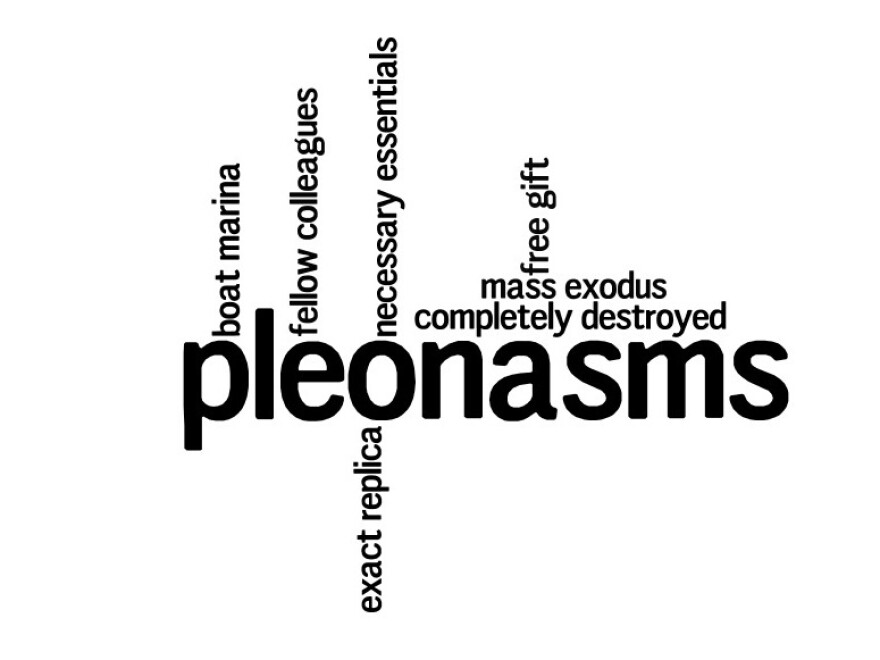There's been a "mass exodus of Syrians," .
that the U.S. should boost domestic energy production and rely less on "foreign imports."
A state lawmaker in Illinois had a "temper tantrum," .
Those are pleonasms — instances where there's a word or two more than necessary. A pleonasm is a type of redundancy, though not one in which the words mean exactly or nearly the same thing.
Take "mass exodus." According to Webster's New World College Dictionary, the word "exodus" means "a going out or forth, esp. in a large group." So there's no need to add "mass."
Imports are by definition from other nations, so "foreign" is unnecessary.
Webster's says a "tantrum" is a "childish fit of bad temper."
John McIntyre of The Baltimore Sun is one of the most respected copy editors in the nation. He has written about pleonasms on his . McIntyre acknowledges that "pleonasms can constitute repetitions for deliberate effect, as in "
It would also seem to be far above this blogger's station to criticize William Shakespeare for deeming Brutus' stabbing of Caesar the "." We'll assume Shakespeare put that "most" there for a reason.
But as McIntyre has written, while pleonasms may occasionally have their place, "they are most commonly errors."
They also take up room, and at NPR and other news organizations where reporters and editors have to fit information into sometimes tight time and space constraints, it's important to eliminate unnecessary words.
We're interested in hearing about pleonasms that bother folks, and we're interested in hearing from those who think it's silly to worry about pleonasms. Share your thoughts in the comments thread, or in emails to wordmatters@npr.org.
Finally, here's one more piece of recommended reading: comedian George Carlin's essay titled "."
is NPR's standards and practices editor. He co-hosted The Two Way from its launch in May 2009 through April 2014. Email him at wordmatters@npr.org.
Copyright 2021 NPR. To see more, visit https://www.npr.org. 9(MDAxNzg0MDExMDEyMTYyMjc1MDE3NGVmMw004))








